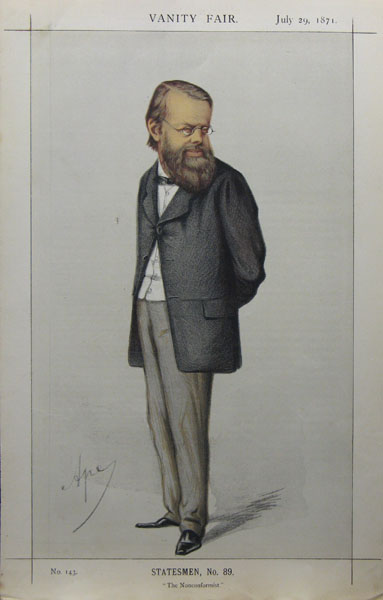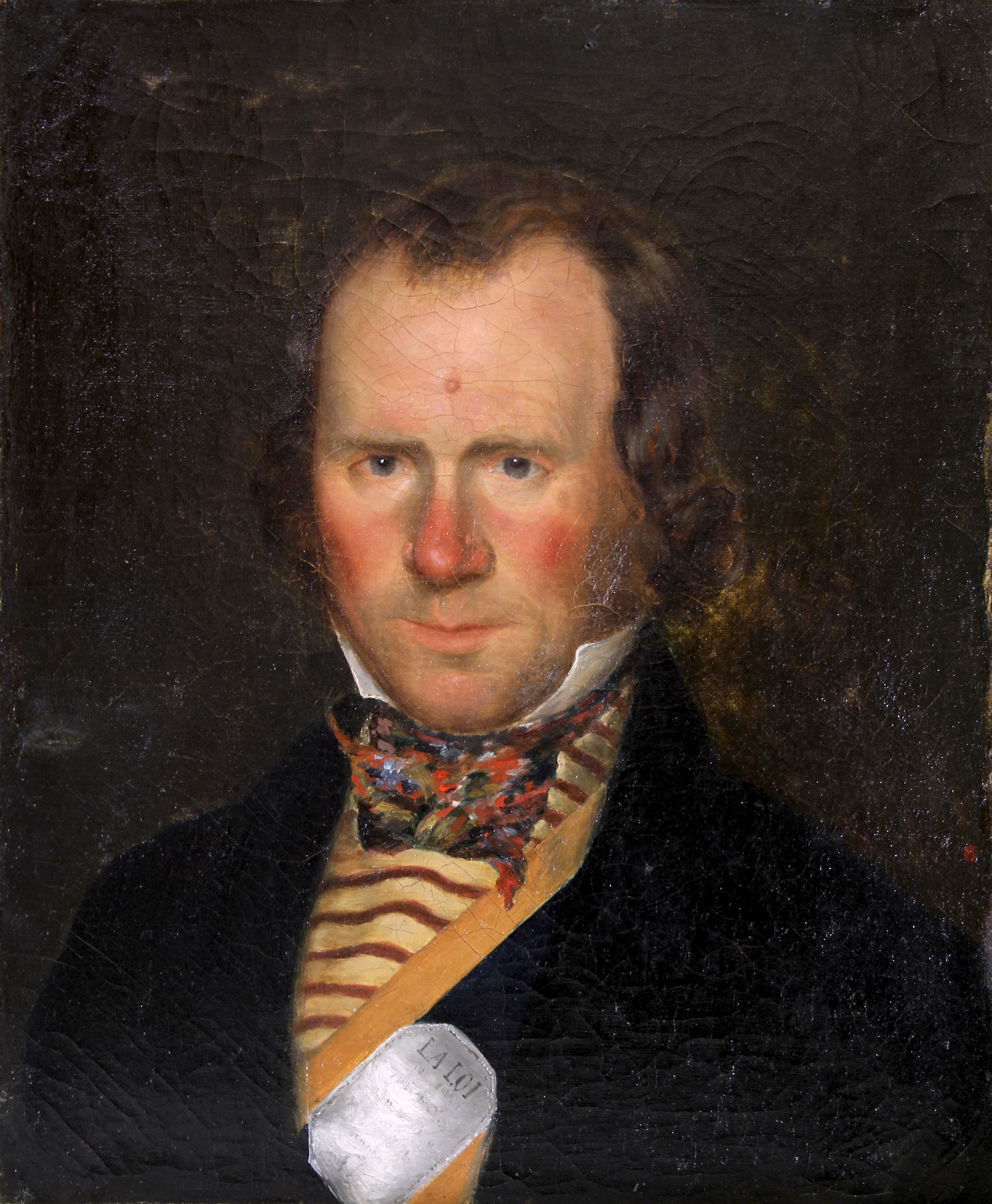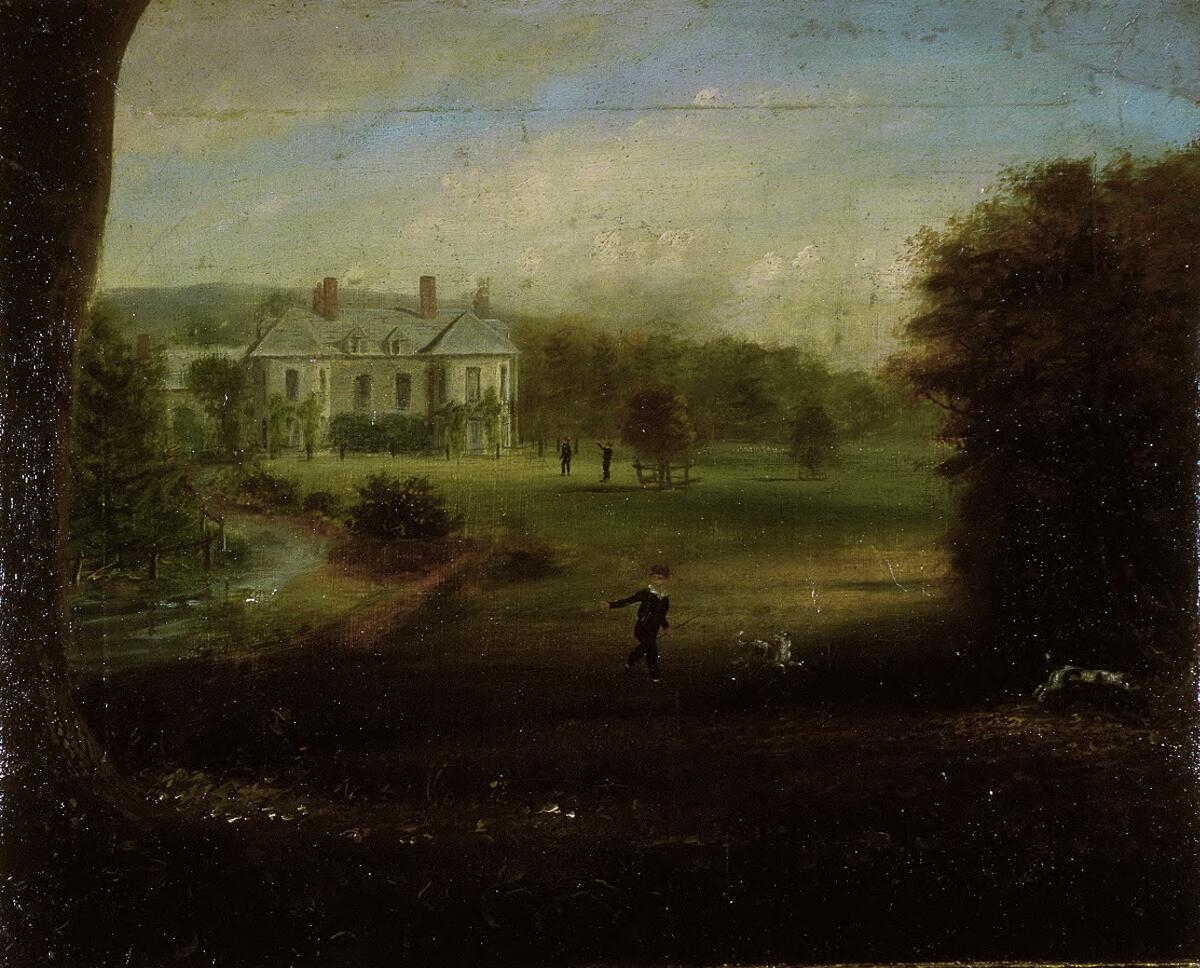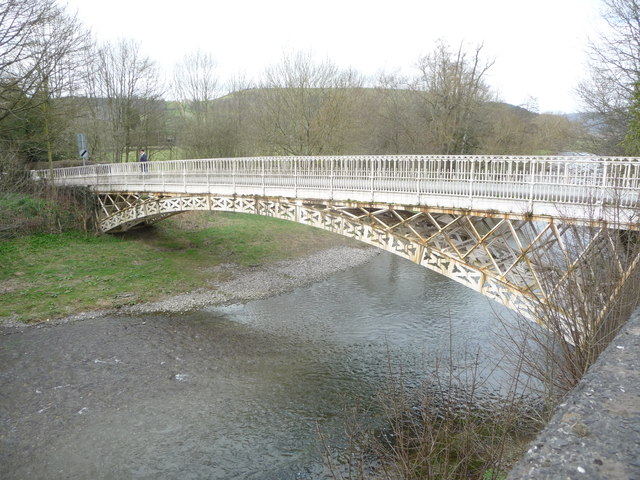|
Henry Richard
Henry Richard (3 April 1812 – 20 August 1888) was a Congregational minister and Wales, Welsh Member of Parliament (United Kingdom), Member of Parliament between 1868–1888. Richard was an advocate of peace and international arbitration, as secretary of the Peace Society for forty years (1848–1884). His other interests included Abolitionism in the United Kingdom, anti-slavery work. Early life Born in 1812 in Tregaron, Ceredigion, he was the second son of Ebenezer Richard (1781–1837), a Calvinism, Calvinistic Methodist minister. He was educated initially at Llangeitho grammar school, and attended Highbury College, near London, to obtain qualifications for the ministry. In 1835, after ordination Richard was appointed pastor at the Congregational Marlborough Chapel, in the Old Kent Road, London. Its foundation stone had been laid by Thomas Wilson in 1826. Richard succeeded Thomas Hughes, and raised sufficient funds to pay off the chapel's building loans and establish a s ... [...More Info...] [...Related Items...] OR: [Wikipedia] [Google] [Baidu] |
Henry Richard Esq MP
Henry may refer to: People and fictional characters * Henry (given name), including lists of people and fictional characters * Henry (surname) * Henry, a stage name of François-Louis Henry (1786–1855), French baritone Arts and entertainment * ''Henry'' (2011 film), a Canadian short film * ''Henry'' (2015 film), a virtual reality film * '' Henry: Portrait of a Serial Killer'', a 1986 American crime film * ''Henry'' (comics), an American comic strip created in 1932 by Carl Anderson * "Henry", a song by New Riders of the Purple Sage Places Antarctica * Henry Bay, Wilkes Land Australia *Henry River (New South Wales) *Henry River (Western Australia) Canada * Henry Lake (Vancouver Island), British Columbia * Henry Lake (Halifax County), Nova Scotia * Henry Lake (District of Chester), Nova Scotia New Zealand * Lake Henry (New Zealand) * Henry River (New Zealand) United States * Henry, Illinois * Henry, Indiana * Henry, Nebraska * Henry, South Dakota * Henry County (disambigu ... [...More Info...] [...Related Items...] OR: [Wikipedia] [Google] [Baidu] |
Liberation Society
The Liberation Society was an organisation in Victorian England that campaigned for disestablishment of the Church of England. It was founded in 1844 by Edward Miall as the British Anti-State Church Association and was renamed in 1853 as the Society for the Liberation of Religion from State Patronage and Control, from which the shortened common name of ''Liberation Society'' derived. Background Nonconformism – which included Baptists, Congregationalists, Unitarians, Wesleyans and other branches of Methodism – was a significant religious movement in mid-nineteenth century Britain. The UK census of 1851 reported that just under half the church-going population, which itself was around half of the total population, were Nonconformists. While no religious movement was able to grow its audience in proportion to the increase in population over the remainder of the century, it seems that the Nonconformists were more actively observant than their Church of England counterparts t ... [...More Info...] [...Related Items...] OR: [Wikipedia] [Google] [Baidu] |
Richard Cobden
Richard Cobden (3 June 1804 – 2 April 1865) was an English Radicals (UK), Radical and Liberal Party (UK), Liberal politician, manufacturing, manufacturer, and a campaigner for free trade and peace. He was associated with the Anti–Corn Law League and the Cobden–Chevalier Treaty. As a young man, Cobden was a successful commercial traveller who became co-owner of a highly profitable calico printing factory in Sabden but lived in Manchester, a city with which he would become strongly identified. However, he soon found himself more engaged in politics, and his travels convinced him of the virtues of free trade (anti-protection) as the key to better international relations. In 1838, he and John Bright founded the Anti–Corn Law League, aimed at abolishing the unpopular Corn Laws, which protected landowners' interests by levying taxes on imported wheat, thus raising the price of bread. As a Member of Parliament of the United Kingdom, Parliament from 1841, he fought against oppo ... [...More Info...] [...Related Items...] OR: [Wikipedia] [Google] [Baidu] |
Society For Effecting The Abolition Of The Slave Trade
The Society for Effecting the Abolition of the Slave Trade, also known as the Society for the Abolition of the Slave Trade, and sometimes referred to as the Abolition Society or Anti-Slavery Society, was a British abolitionist group formed on 22 May 1787. The objective of abolishing the slave trade was achieved in 1807. The abolition of slavery in all British colonies followed in 1833. Adam Hochschild posits that this anti-slavery movement is the first peaceful social movement which all modern social movements are built upon. A number of the founders had been meeting at George Yard since 1783, and over four years grew their circle of friends to include Thomas Clarkson, an unknown at that time. The society was established by twelve men; including individuals who later became prominent campaigners, such as Thomas Clarkson and Granville Sharp. As Anglicans they were able to be more influential in Parliament than the more numerous Quaker founding members - given Non-conformists ... [...More Info...] [...Related Items...] OR: [Wikipedia] [Google] [Baidu] |
Joseph Sturge
Joseph Sturge (2 August 1793 – 14 May 1859) was an English Quaker, abolitionist and activist. He founded the British and Foreign Anti-Slavery Society (now Anti-Slavery International). He worked throughout his life in Radical political actions supporting pacifism, working-class rights, and the universal emancipation of slaves. In the late 1830s, he published two books about the apprenticeship system in Jamaica, which helped persuade the British Parliament to adopt an earlier full emancipation date. In Jamaica, Sturge also helped found Free Villages with the Baptists, to provide living quarters for freed slaves; one was named Sturge Town in his memory. Early life Born on 2 August 1793, Joseph Sturge was the fourth child in the family of 12 of Joseph Sturge, a farmer in Elberton, Gloucestershire, and his wife Mary Marshall, who belonged to the Religious Society of Friends (commonly known as Quakers). His brothers included John Sturge, who became a manufacturer in Birmingham, a ... [...More Info...] [...Related Items...] OR: [Wikipedia] [Google] [Baidu] |
Nonconformist (Protestantism)
Nonconformists are Protestant Christians who do not "conform" to the governance and usages of the established church in England, and in Wales until 1914, the Church of England. Use of the term ''Nonconformist'' in England and Wales was precipitated by the Restoration of the Stuart monarchy in 1660, when the Act of Uniformity 1662 renewed opposition to reforms within the established church. By the late 19th century the term specifically included other Reformed Christians ( English Presbyterians and Congregationalists), plus the Baptists, Brethren, Methodists, and Quakers. English Dissenters, such as the Puritans, who violated the Act of Uniformity 1558 – typically by practising radical, sometimes separatist, dissent – were retrospectively labelled as Nonconformists. In Ireland, the comparable term until the Church of Ireland's disestablishment in 1869 was Dissenter (the term earlier used in England), commonly referring to Irish Presbyterians who dissented from th ... [...More Info...] [...Related Items...] OR: [Wikipedia] [Google] [Baidu] |
British House Of Commons
The House of Commons is the lower house of the Parliament of the United Kingdom. Like the upper house, the House of Lords, it meets in the Palace of Westminster in London, England. The House of Commons is an elected body consisting of 650 members known as members of Parliament (MPs), who are elected to represent constituencies by the first-past-the-post system and hold their seats until Parliament is dissolved. The House of Commons of England began to evolve in the 13th and 14th centuries. In 1707 it became the House of Commons of Great Britain after the political union with Scotland, and from 1801 it also became the House of Commons for Ireland after the political union of Great Britain and Ireland. In 1922, the body became the House of Commons of the United Kingdom of Great Britain and Northern Ireland after the independence of the Irish Free State. Under the Parliament Acts 1911 and 1949, the Lords' power to reject legislation was reduced to a delaying power. The gove ... [...More Info...] [...Related Items...] OR: [Wikipedia] [Google] [Baidu] |
Merthyr Tydfil (UK Parliament Constituency)
Merthyr Tydfil was a United Kingdom constituencies, parliamentary constituency centred on the town of Merthyr Tydfil in Glamorgan. From 1832 to 1868 it returned one Member of Parliament (United Kingdom), Member of Parliament (MP) to the House of Commons of the United Kingdom, House of Commons of the Parliament of the United Kingdom, and in 1868 this was increased to two members. The two-member constituency was abolished for the 1918 United Kingdom general election, 1918 general election. A single-member constituency (known as Merthyr) existed from 1918 until 1945 and, by the 1950 United Kingdom general election, 1950 general election, it had been renamed Merthyr Tydfil. The constituency was abolished for the 1983 United Kingdom general election, 1983 general election, when it was largely replaced by the new Merthyr Tydfil and Rhymney (UK Parliament constituency), Merthyr Tydfil and Rhymney constituency. History Merthyr was regarded as a Liberal seat throughout the nineteenth ... [...More Info...] [...Related Items...] OR: [Wikipedia] [Google] [Baidu] |
Liberal Party (UK)
The Liberal Party was one of the two Major party, major List of political parties in the United Kingdom, political parties in the United Kingdom, along with the Conservative Party (UK), Conservative Party, in the 19th and early 20th centuries. Beginning as an alliance of Whigs (British political party), Whigs, free trade–supporting Peelites, and reformist Radicals (UK), Radicals in the 1850s, by the end of the 19th century, it had formed four governments under William Ewart Gladstone. Despite being divided over the issue of Irish Home Rule, the party returned to government in 1905 and won a landslide victory in the 1906 United Kingdom general election, 1906 general election. Under Prime Minister of the United Kingdom, prime ministers Henry Campbell-Bannerman (1905–1908) and H. H. Asquith (1908–1916), the Liberal Party passed Liberal welfare reforms, reforms that created a basic welfare state. Although Asquith was the Leader of the Liberal Party (UK), party leader, its domin ... [...More Info...] [...Related Items...] OR: [Wikipedia] [Google] [Baidu] |
Aberystwyth
Aberystwyth (; ) is a University town, university and seaside town and a community (Wales), community in Ceredigion, Wales. It is the largest town in Ceredigion and from Aberaeron, the county's other administrative centre. In 2021, the population of the town was 14,640. Located in the Historic counties of Wales, historic county of Cardiganshire, means "the mouth of the River Ystwyth, Ystwyth". It has been a major educational location in Wales since the establishment of University College Wales, now Aberystwyth University, in 1872. The town is situated on Cardigan Bay on the west coast of Wales, near the confluence of the River Ystwyth and Afon Rheidol. Following the reconstruction of the harbour, the Ystwyth skirts the town. The Rheidol passes through the town. The seafront, with a Royal Pier, Aberystwyth, pier, stretches from Constitution Hill, Aberystwyth, Constitution Hill at the north end of the Promenade to the harbour at the south. The beach is divided by the castle. T ... [...More Info...] [...Related Items...] OR: [Wikipedia] [Google] [Baidu] |
Gogerddan
Gogerddan (also spelled Gogarthen) was an estate near to Trefeurig and the most important in what was then the county of Cardiganshire, Wales. Owned since at least the fifteenth century by the Pryse family, the main house, called Plas Gogerddan, still stands and is a Grade II listed building. The estate became especially wealthy from the seventeenth century on the profits from lead mining, which is when the house was constructed. The house was significantly altered in the 1860s and was sold by Sir Pryse Loveden Saunders-Pryse to University College of Wales in 1949. Gogerddan provisionally held the high temperature record for Wales – 35.3°C, which was recorded on 18 July 2022. It replaced the previous record holder Hawarden which held the record for almost 32 years. This record was short-lived, however, as by the end of the same day, Hawarden recorded a temperature of 37.1°C. See also * Pryse baronets There have been two baronetcies created for members of the Pryse fa ... [...More Info...] [...Related Items...] OR: [Wikipedia] [Google] [Baidu] |
David Davies (industrialist)
David Davies (18 December 1818 – 20 July 1890) was a Welsh industrialist and Liberal politician who sat in the House of Commons between 1874 and 1886. Davies was often known as David Davies Llandinam (from the place of his birth, Llandinam in Montgomeryshire).Ivor Bulmer-Thomas: ''Top Sawyer: David Davies of Llandinam'' (Golden Grove, Carmarthen, 1988) He is best remembered today for founding Barry Docks. Early life and education Davies was the son of farmer David Davies and his wife Elizabeth and the eldest of nine children. He attended the day school at Llandinam but was primarily self-educated. He began work as a sawyer and went into agriculture, working alongside his father, who died when David was aged 20, leaving him to take charge of the family. He was successful from an early age and in 1848 took over a larger farm called Tynymaen, which later became the home farm of the Plâs Dinam estate. Two years later he took over a further holding, Gwerneirin. Religion A C ... [...More Info...] [...Related Items...] OR: [Wikipedia] [Google] [Baidu] |








